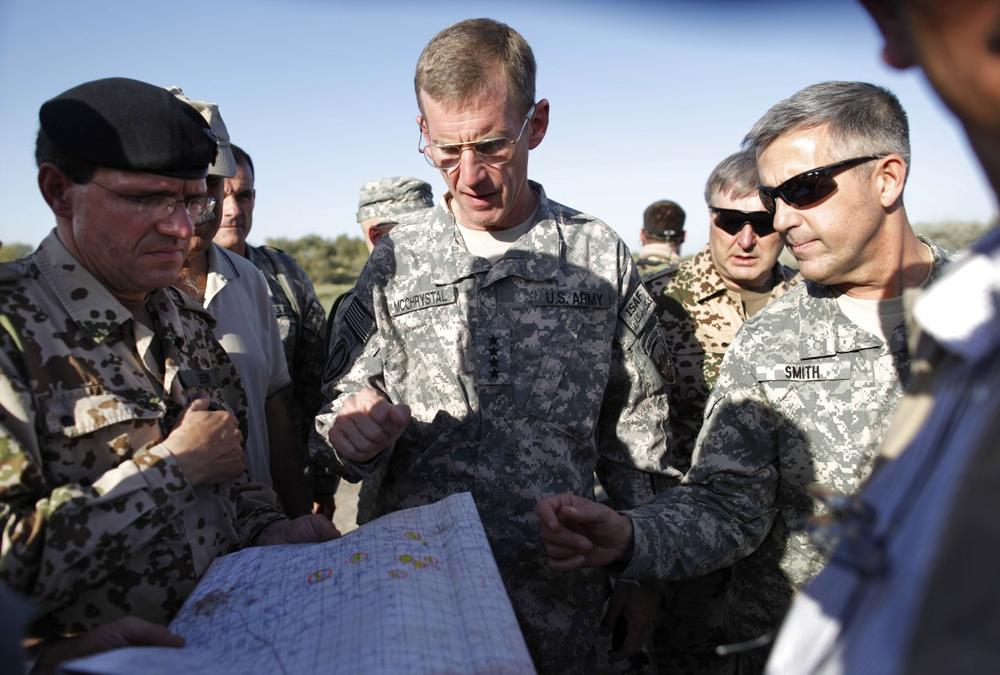Advertisement
U.S. General Inspects Afghan Tanker Airstrike Site

The top U.S. and NATO commander in Afghanistan visited the site of an airstrike on fuel tankers hijacked by the Taliban, as the alliance began an investigation Saturday into whether civilians were among scores who died.
Gen. Stanley McChrystal waded through knee-high water to inspect the blackened tankers, which exploded when a U.S. F-15E Strike Eagle jet dropped two 500-pound bombs. Local officials have said about 70 people died in the northern province of Kunduz, but it was unclear how many were militants and how many were villagers who had rushed to the scene to siphon fuel from the trucks.
On Saturday, reporters traveling with McChrystal saw that about a dozen small yellow fuel cans had survived the blast. Several were still full of fuel.
Friday's pre-dawn strike occurred despite McChrystal's new orders restricting use of airpower if civilian lives are at risk. High civilian casualties in military operations have enraged Afghans and undercut support for the war against the Taliban.
A 10-member NATO investigative team flew over the site on the Kunduz River where the U.S. jet, called in by the German military, bombed the tankers, which reportedly had become stuck trying to cross a river. German officials have said the Taliban may have been planning a suicide attack on the military's nearby Kunduz base using the tankers, which were hijacked carrying NATO fuel supplies from neighboring Tajikistan.
The investigative team led by U.S. Rear Admiral Gregory J. Smith, NATO's director of communications in Kabul, also spoke to two wounded villagers in the Kunduz hospital, including a boy and a farmer with shrapnel wounds.
Before traveling to the site of the bombing, McCrystal met with local Afghan leaders in the provincial capital. He expressed sympathy for any civilian losses and said the fight against the Taliban should not come at the expense of civilian lives.
"I am here today to ensure that we are operating in a way that is truly protecting the Afghan people from all threats," he told the officials.
At least one local official supported the allied bombing, saying it would help drive the insurgents from the area.
"If we did three more operations like we did yesterday morning, the Kunduz situation would be peaceful and stable," said Ahmadullah Wardak, a provincial council chief.
This program aired on September 5, 2009. The audio for this program is not available.